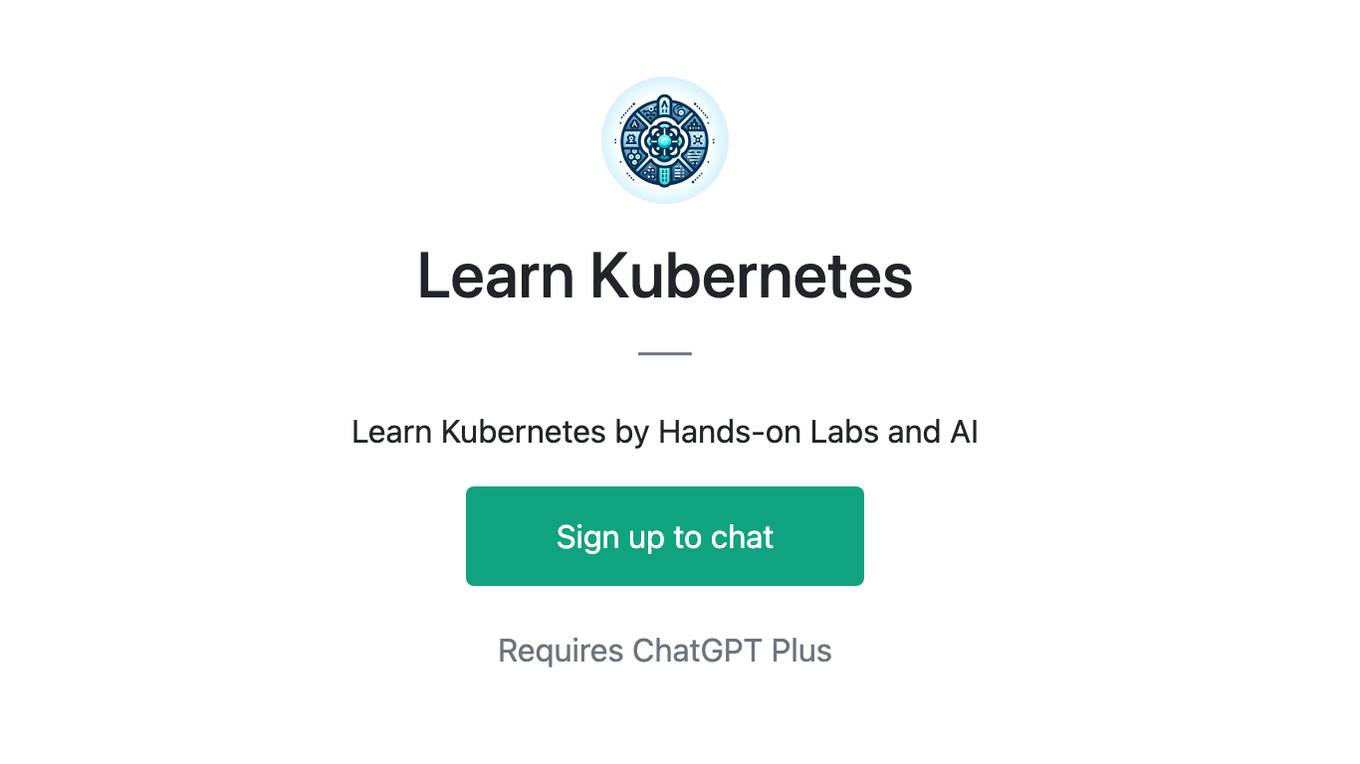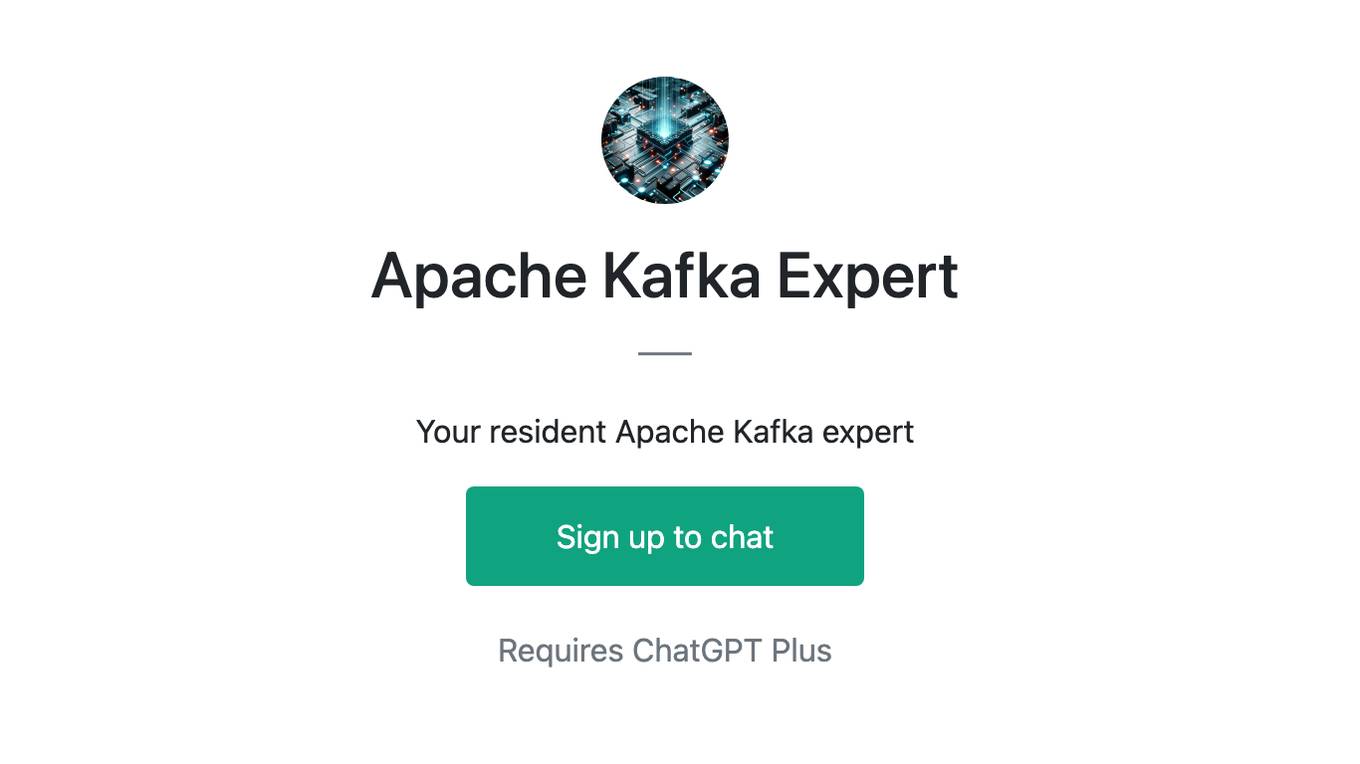Best AI tools for< Cluster Data >
20 - AI tool Sites
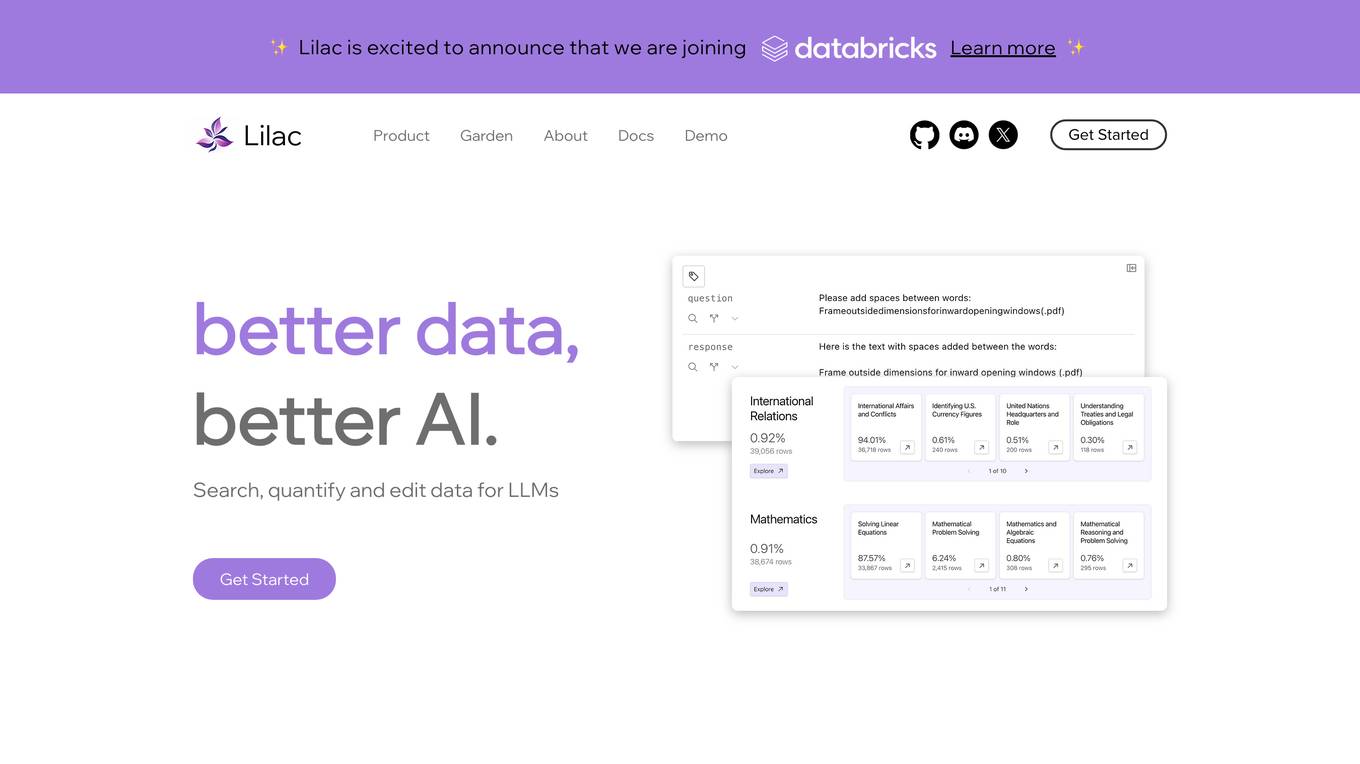
Lilac
Lilac is an AI tool designed to enhance data quality and exploration for AI applications. It offers features such as data search, quantification, editing, clustering, semantic search, field comparison, and fuzzy-concept search. Lilac enables users to accelerate dataset computations and transformations, making it a valuable asset for data scientists and AI practitioners. The tool is trusted by Alignment Lab and is recommended for working with LLM datasets.
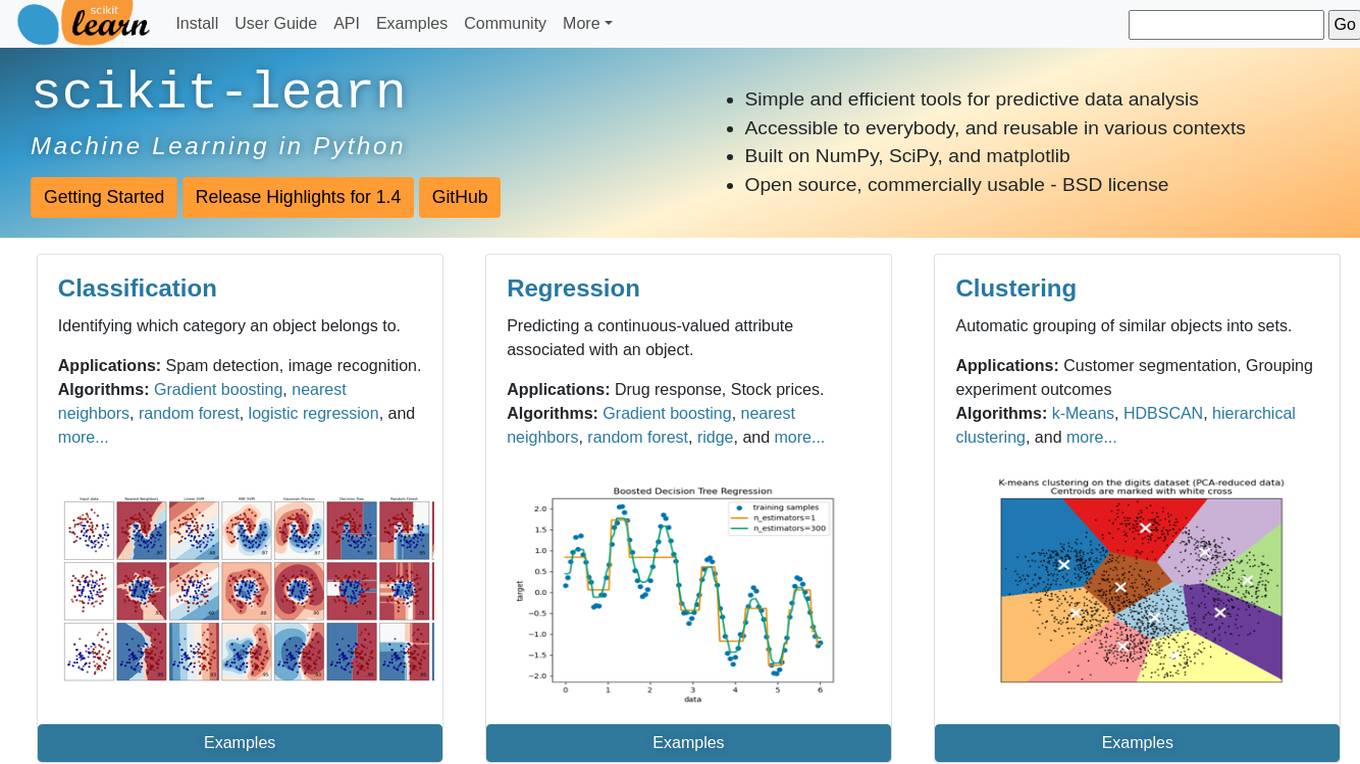
scikit-learn
Scikit-learn is a free software machine learning library for the Python programming language. It features various classification, regression and clustering algorithms including support vector machines, random forests, gradient boosting, k-means and DBSCAN, and is designed to interoperate with the Python numerical and scientific libraries NumPy and SciPy.
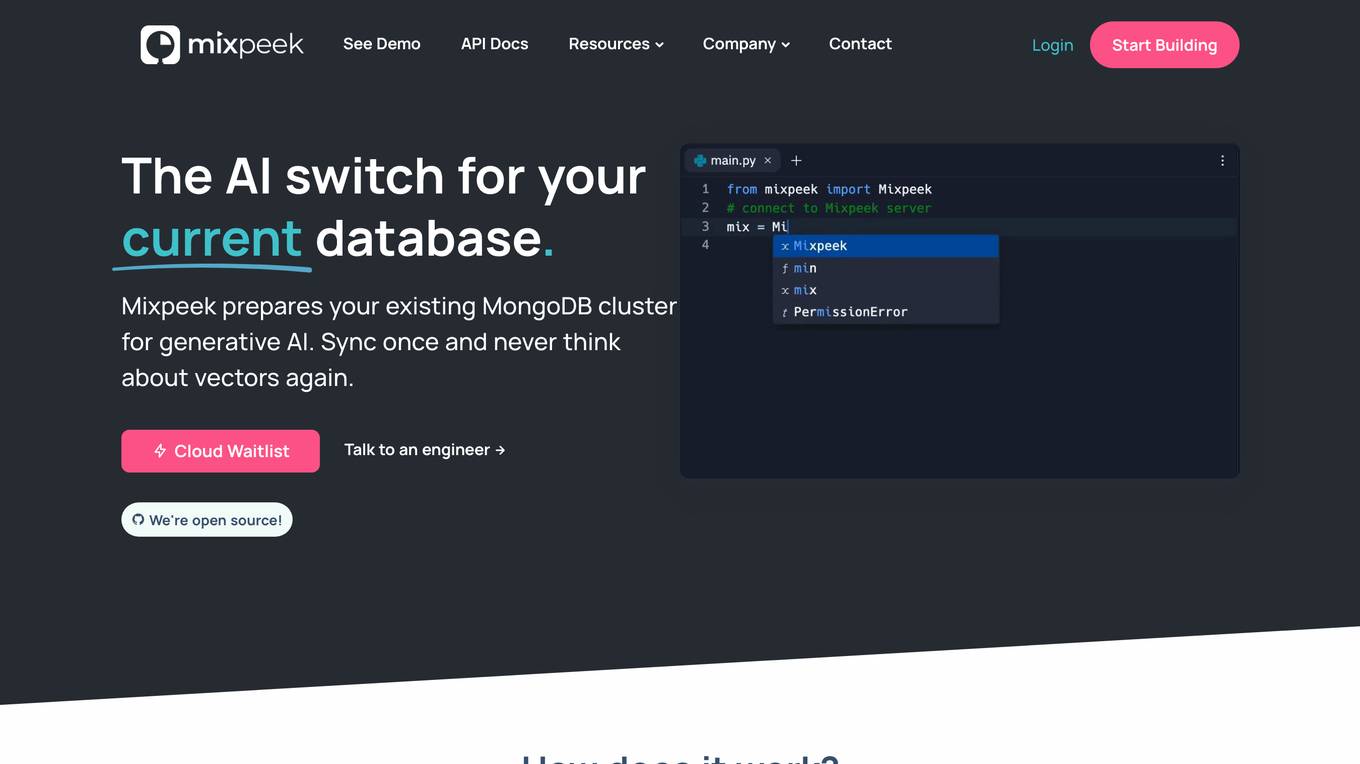
Mixpeek Solutions
Mixpeek Solutions offers a Multimodal Data Warehouse for Developers, providing a Developer-First API for AI-native Content Understanding. The platform allows users to search, monitor, classify, and cluster unstructured data like video, audio, images, and documents. Mixpeek Solutions offers a range of features including Unified Search, Automated Classification, Unsupervised Clustering, Feature Extractors for Every Data Type, and various specialized extraction models for different data types. The platform caters to a wide range of industries and provides seamless model upgrades, cross-model compatibility, A/B testing infrastructure, and simplified model management.

Pulse
Pulse is a world-class expert support tool for BigData stacks, specifically focusing on ensuring the stability and performance of Elasticsearch and OpenSearch clusters. It offers early issue detection, AI-generated insights, and expert support to optimize performance, reduce costs, and align with user needs. Pulse leverages AI for issue detection and root-cause analysis, complemented by real human expertise, making it a strategic ally in search cluster management.

Backend.AI
Backend.AI is an enterprise-scale cluster backend for AI frameworks that offers scalability, GPU virtualization, HPC optimization, and DGX-Ready software products. It provides a fast and efficient way to build, train, and serve AI models of any type and size, with flexible infrastructure options. Backend.AI aims to optimize backend resources, reduce costs, and simplify deployment for AI developers and researchers. The platform integrates seamlessly with existing tools and offers fractional GPU usage and pay-as-you-play model to maximize resource utilization.

Mystic.ai
Mystic.ai is an AI tool designed to deploy and scale Machine Learning models with ease. It offers a fully managed Kubernetes platform that runs in your own cloud, allowing users to deploy ML models in their own Azure/AWS/GCP account or in a shared GPU cluster. Mystic.ai provides cost optimizations, fast inference, simpler developer experience, and performance optimizations to ensure high-performance AI model serving. With features like pay-as-you-go API, cloud integration with AWS/Azure/GCP, and a beautiful dashboard, Mystic.ai simplifies the deployment and management of ML models for data scientists and AI engineers.
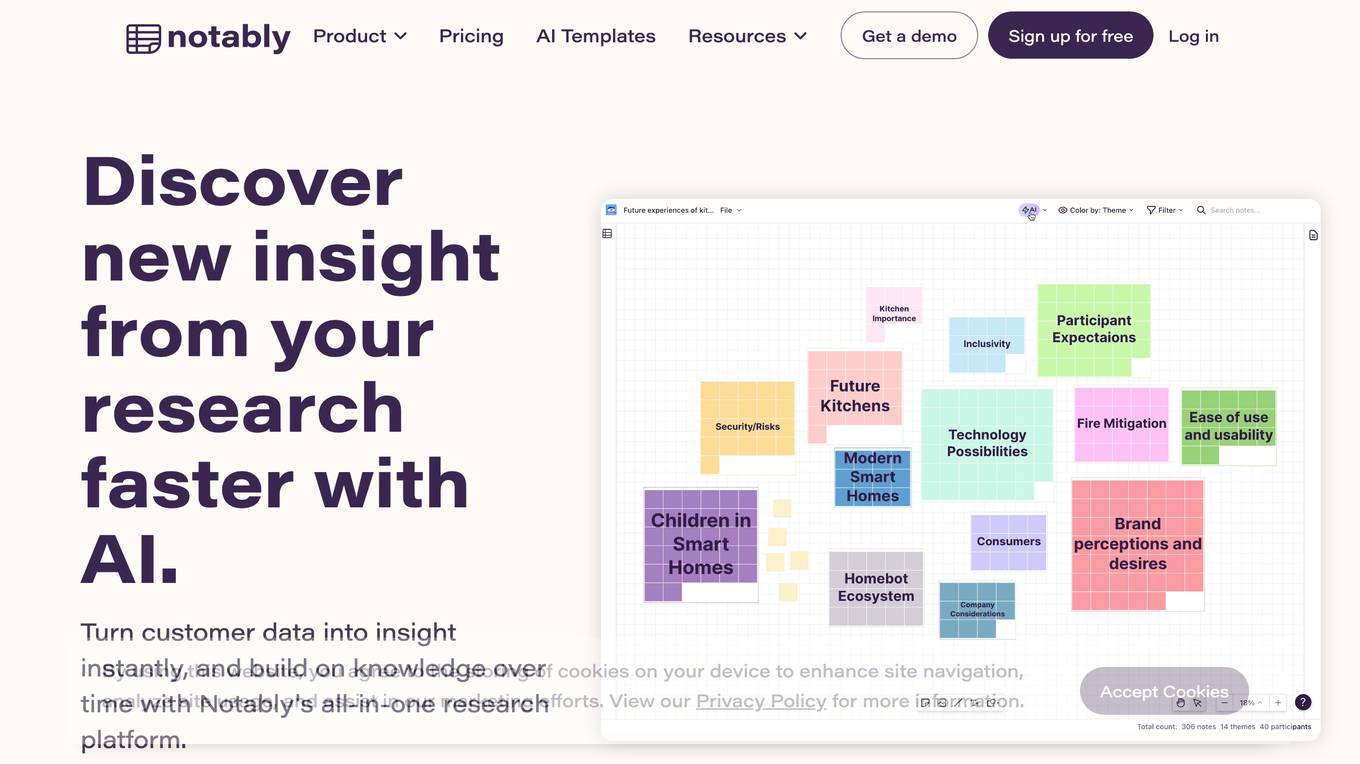
Notably
Notably is a research synthesis platform that uses AI to help researchers analyze and interpret data faster. It offers a variety of features, including a research repository, AI research, digital sticky notes, video transcription, and cluster analysis. Notably is used by companies and organizations of all sizes to conduct product research, market research, academic research, and more.

Groq
Groq is a fast AI inference tool that offers GroqCloud™ Platform and GroqRack™ Cluster for developers to build and deploy AI models with ultra-low-latency inference. It provides instant intelligence for openly-available models like Llama 3.1 and is known for its speed and compatibility with other AI providers. Groq powers leading openly-available AI models and has gained recognition in the AI chip industry. The tool has received significant funding and valuation, positioning itself as a strong challenger to established players like Nvidia.
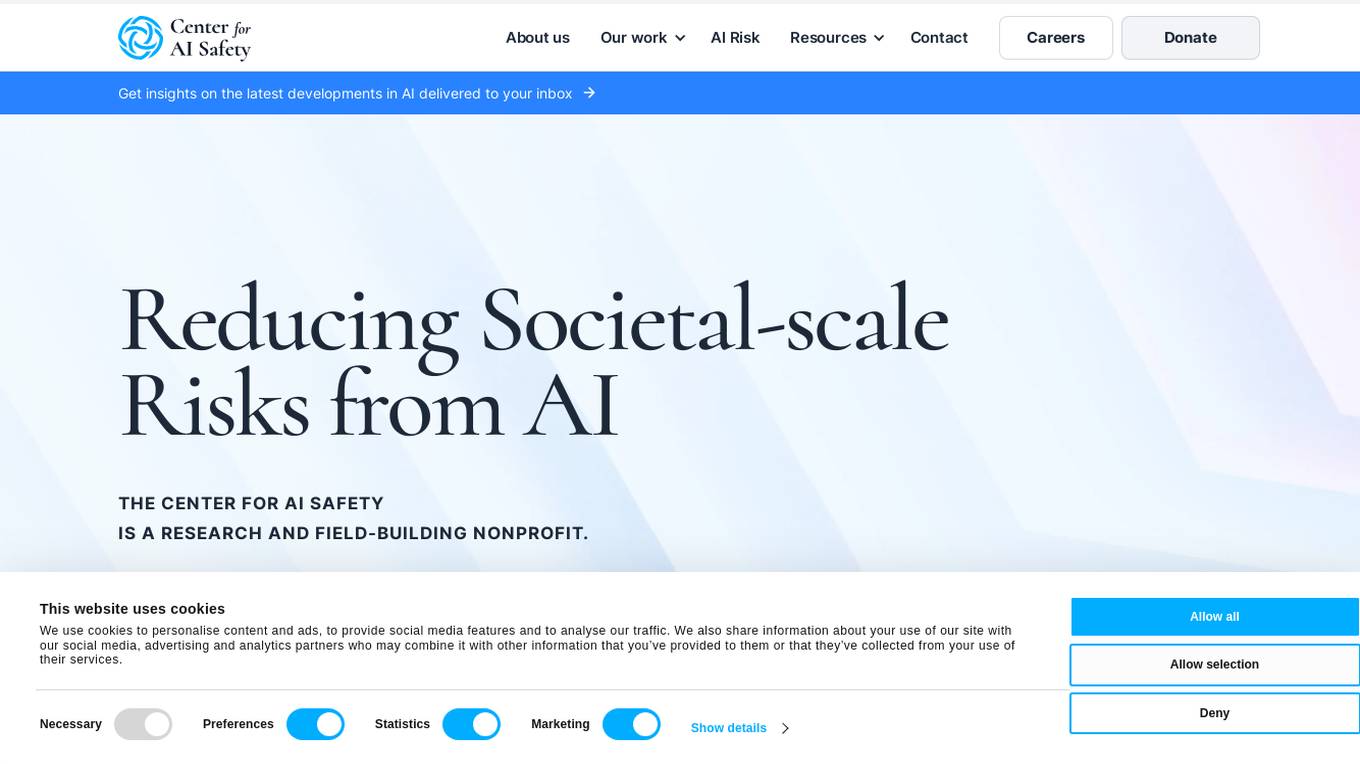
Center for AI Safety (CAIS)
The Center for AI Safety (CAIS) is a research and field-building nonprofit organization based in San Francisco. They conduct impactful research, advocacy projects, and provide resources to reduce societal-scale risks associated with artificial intelligence (AI). CAIS focuses on technical AI safety research, field-building projects, and offers a compute cluster for AI/ML safety projects. They aim to develop and use AI safely to benefit society, addressing inherent risks and advocating for safety standards.
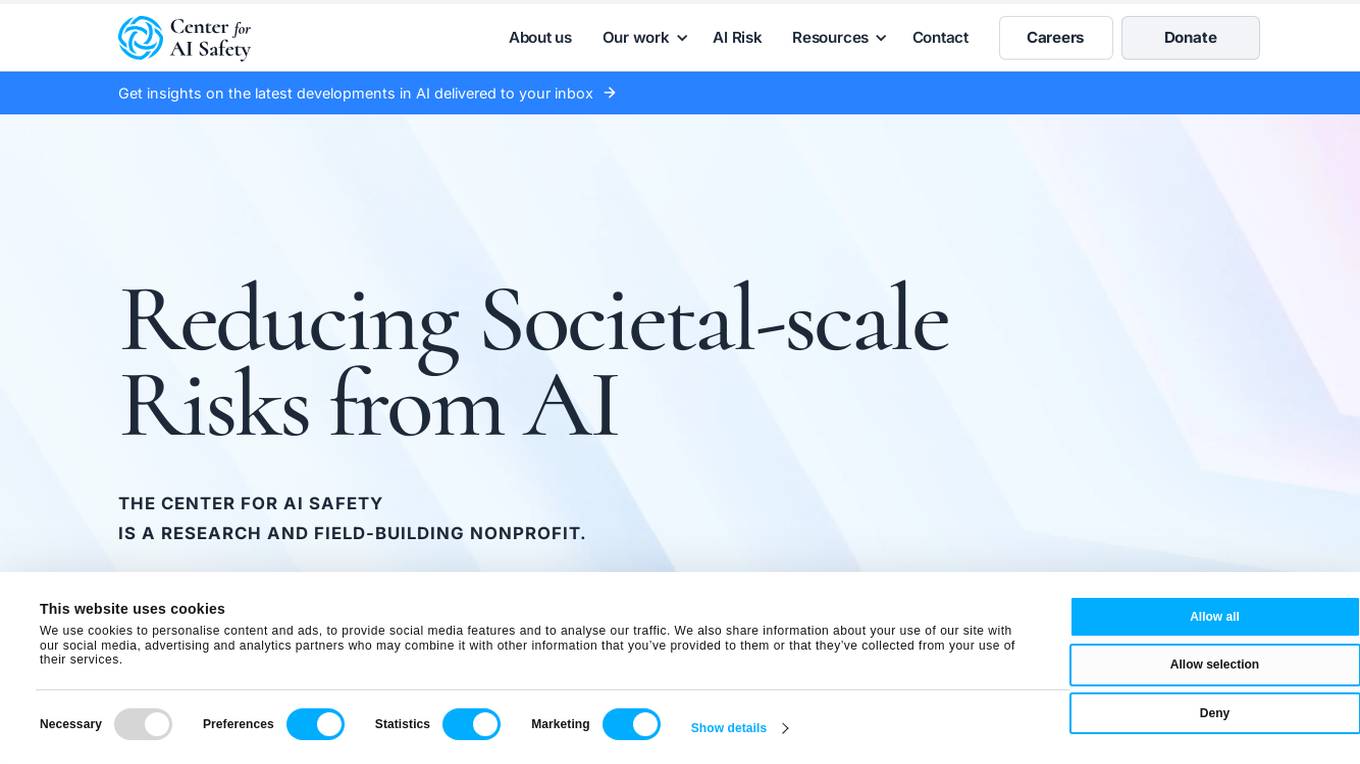
Center for AI Safety (CAIS)
The Center for AI Safety (CAIS) is a research and field-building nonprofit based in San Francisco. Their mission is to reduce societal-scale risks associated with artificial intelligence (AI) by conducting impactful research, building the field of AI safety researchers, and advocating for safety standards. They offer resources such as a compute cluster for AI/ML safety projects, a blog with in-depth examinations of AI safety topics, and a newsletter providing updates on AI safety developments. CAIS focuses on technical and conceptual research to address the risks posed by advanced AI systems.
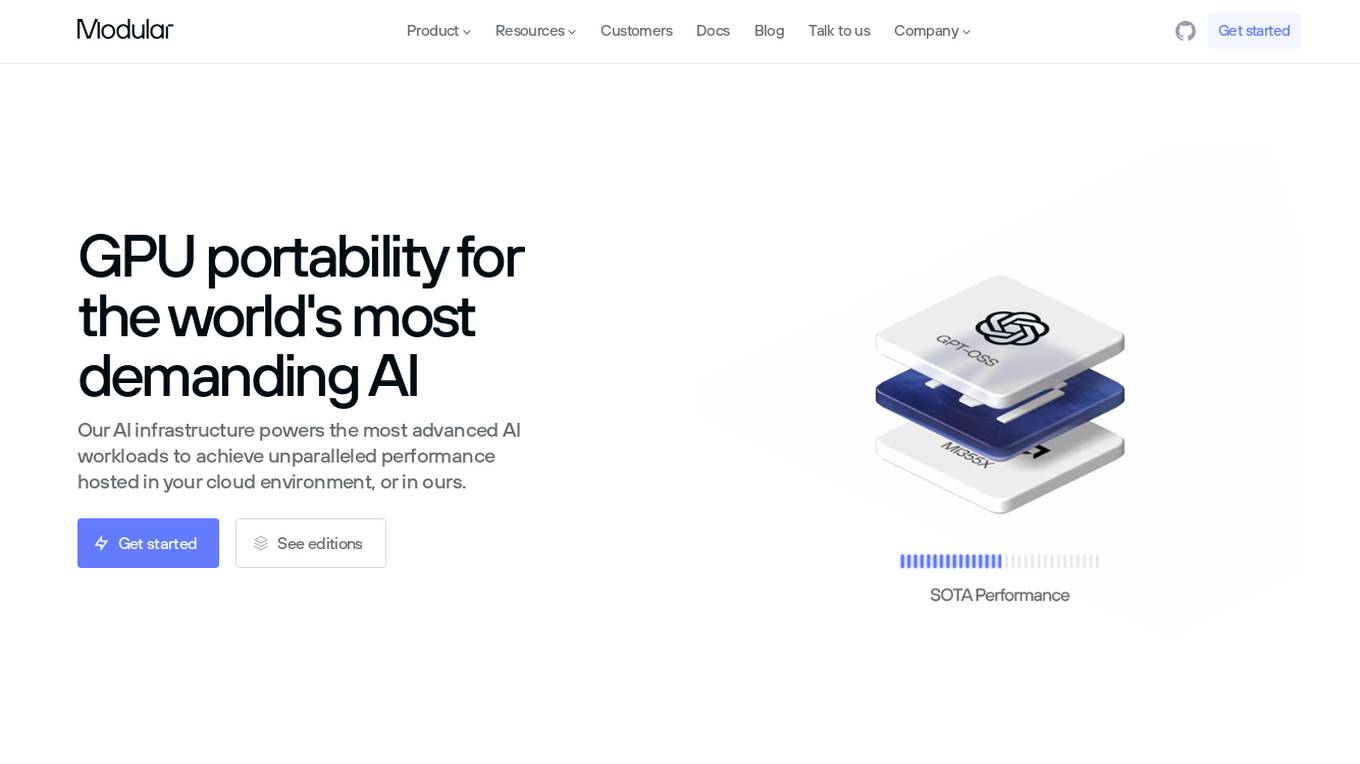
Modular
Modular is a fast, scalable Gen AI inference platform that offers a comprehensive suite of tools and resources for AI development and deployment. It provides solutions for AI model development, deployment options, AI inference, research, and resources like documentation, models, tutorials, and step-by-step guides. Modular supports GPU and CPU performance, intelligent scaling to any cluster, and offers deployment options for various editions. The platform enables users to build agent workflows, utilize AI retrieval and controlled generation, develop chatbots, engage in code generation, and improve resource utilization through batch processing.
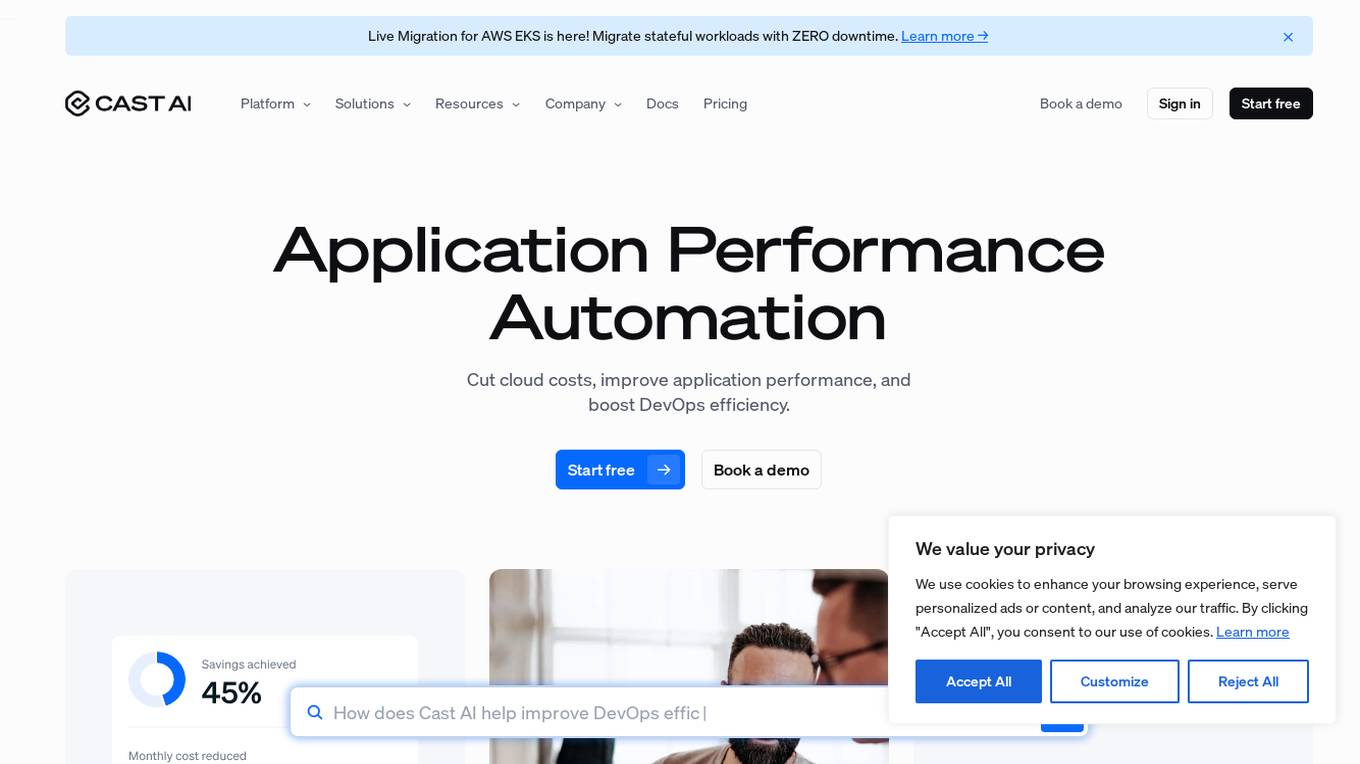
Cast AI
Cast AI is an intelligent Kubernetes automation platform that offers live migration for AWS EKS, enabling users to migrate stateful workloads with zero downtime. The platform provides application performance automation by automating and optimizing the entire application stack, including Kubernetes cluster optimization, security, workload optimization, LLM optimization for AIOps, cost monitoring, and database optimization. Cast AI integrates with various cloud services and tools, offering solutions for migration of stateful workloads, inference at scale, and cutting AI costs without sacrificing scale. The platform helps users improve performance, reduce costs, and boost productivity through end-to-end application performance automation.

This Beach Does Not Exist
This Beach Does Not Exist is an AI application powered by StyleGAN2-ADA network, capable of generating realistic beach images. The website showcases AI-generated beach landscapes created from a dataset of approximately 20,000 images. Users can explore the training progress of the network, generate random images, utilize K-Means Clustering for image grouping, and download the network for experimentation or retraining purposes. Detailed technical information about the network architecture, dataset, training steps, and metrics is provided. The application is based on the GAN architecture developed by NVIDIA Labs and offers a unique experience of creating virtual beach scenes through AI technology.
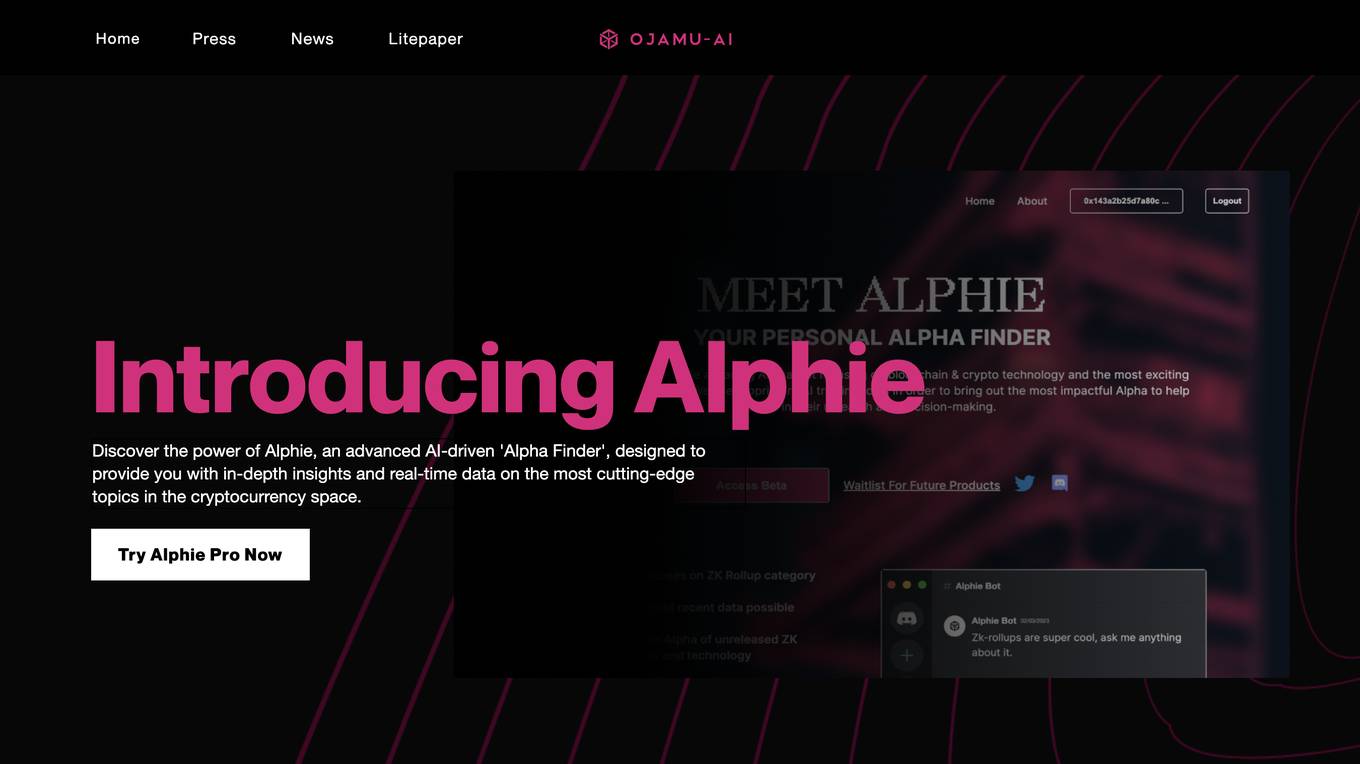
Ojamu
Ojamu is an AI and Blockchain-powered platform that empowers brands to reach their marketing goals in the Web 3.0 economy. It provides data-driven predictions, real-time insights, and automated solutions for organic product marketing across digital channels. Ojamu's AI Product Suite includes Alphie, an advanced AI-driven 'Alpha Finder', and the Ojamu Intelligence Platform (OIP) that securely accesses industry data from leading blockchain protocols. The platform helps brands optimize decision-making, analyze data clusters, and unlock new opportunities in the Web3 realm.
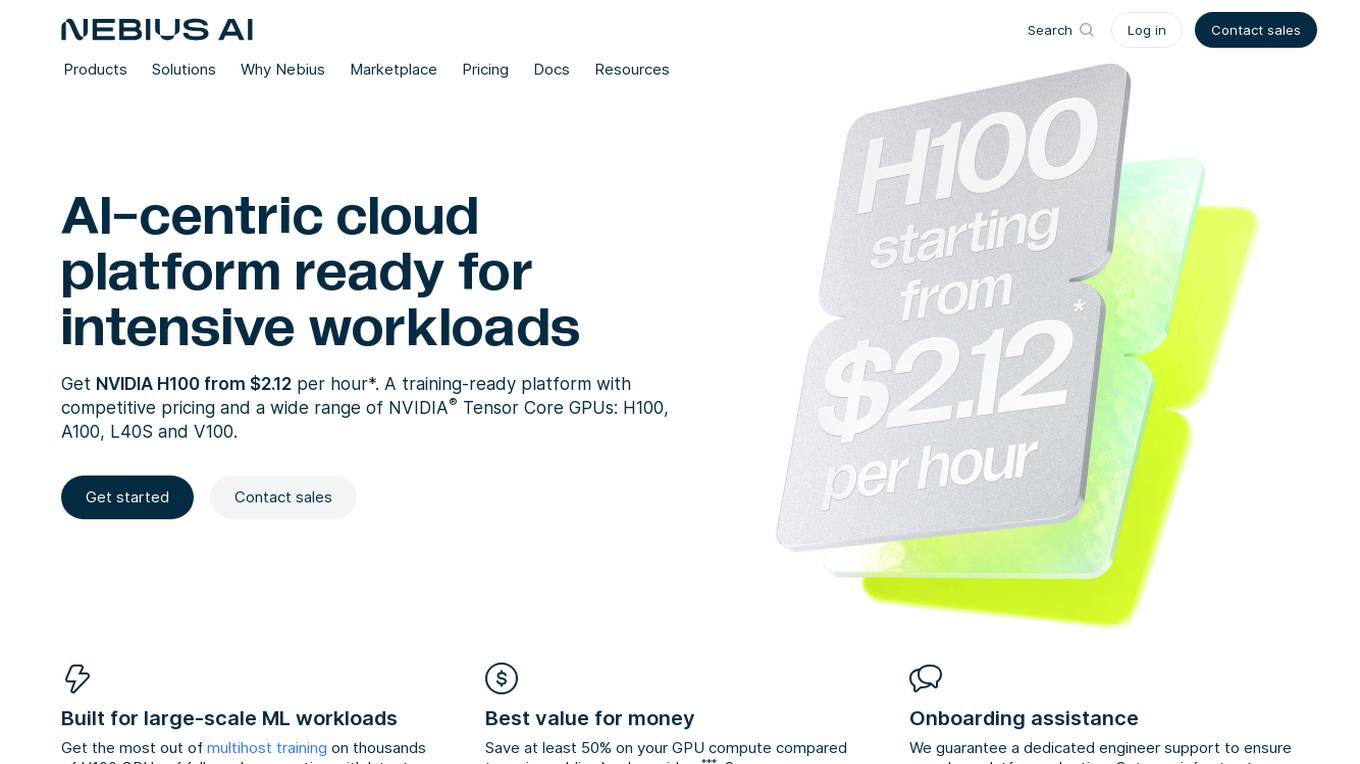
Nebius AI
Nebius AI is an AI-centric cloud platform designed to handle intensive workloads efficiently. It offers a range of advanced features to support various AI applications and projects. The platform ensures high performance and security for users, enabling them to leverage AI technology effectively in their work. With Nebius AI, users can access cutting-edge AI tools and resources to enhance their projects and streamline their workflows.
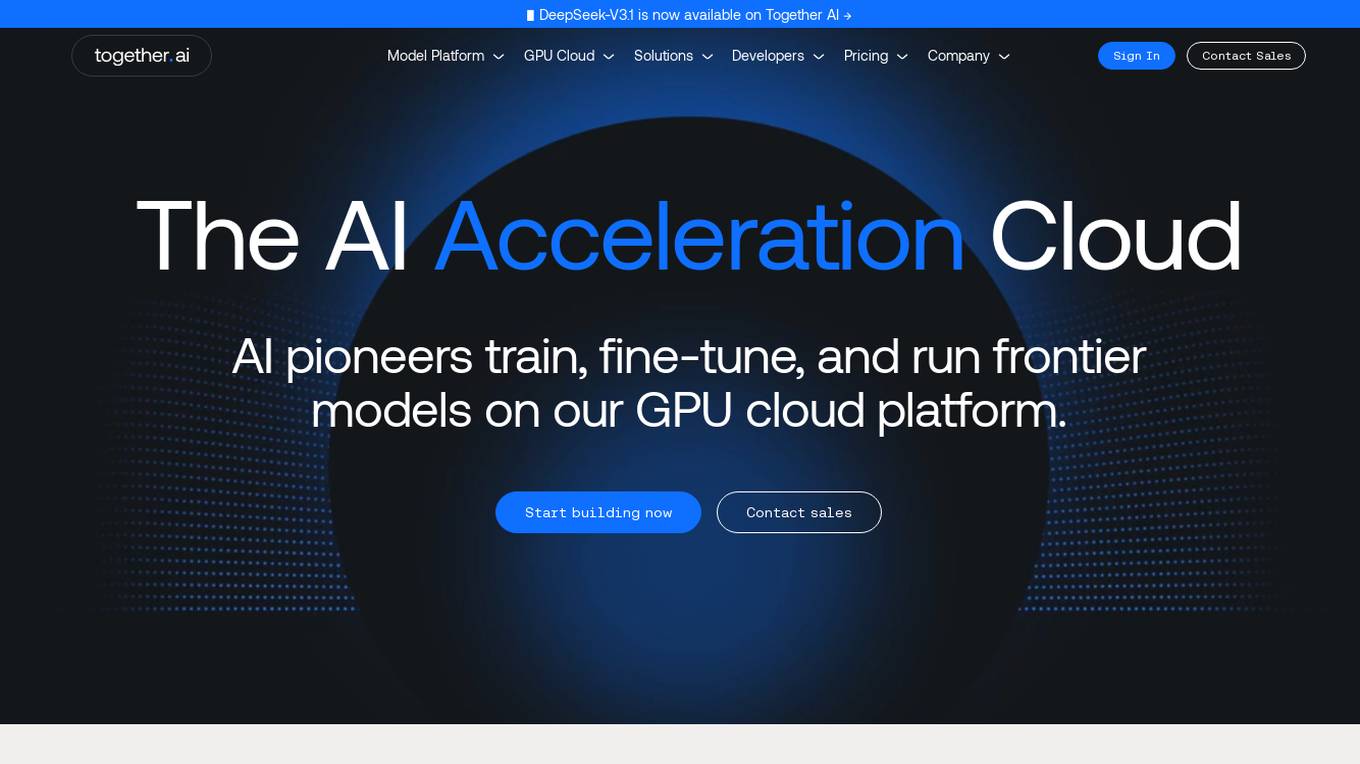
Together AI
Together AI is an AI Acceleration Cloud platform that offers fast inference, fine-tuning, and training services. It provides self-service NVIDIA GPUs, model deployment on custom hardware, AI chat app, code execution sandbox, and tools to find the right model for specific use cases. The platform also includes a model library with open-source models, documentation for developers, and resources for advancing open-source AI. Together AI enables users to leverage pre-trained models, fine-tune them, or build custom models from scratch, catering to various generative AI needs.
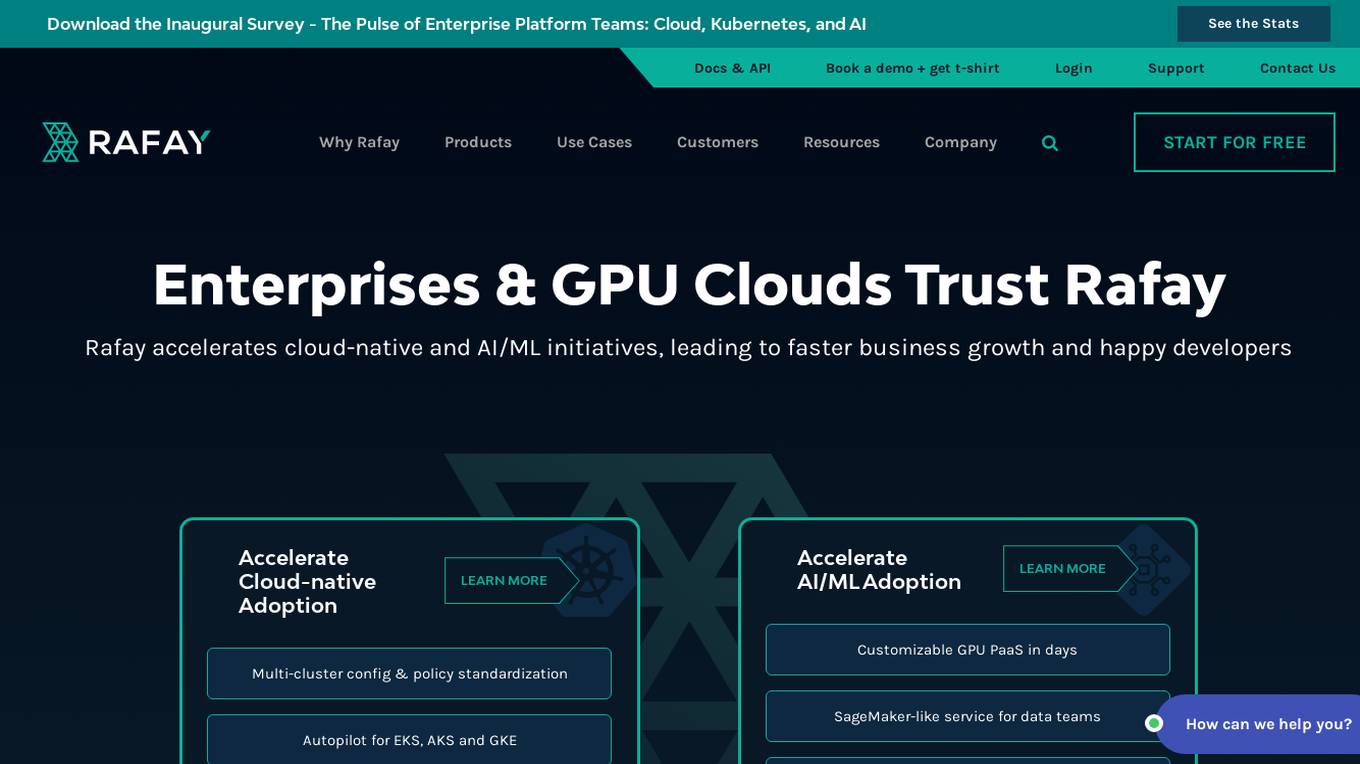
Rafay
Rafay is an AI-powered platform that accelerates cloud-native and AI/ML initiatives for enterprises. It provides automation for Kubernetes clusters, cloud cost optimization, and AI workbenches as a service. Rafay enables platform teams to focus on innovation by automating self-service cloud infrastructure workflows.
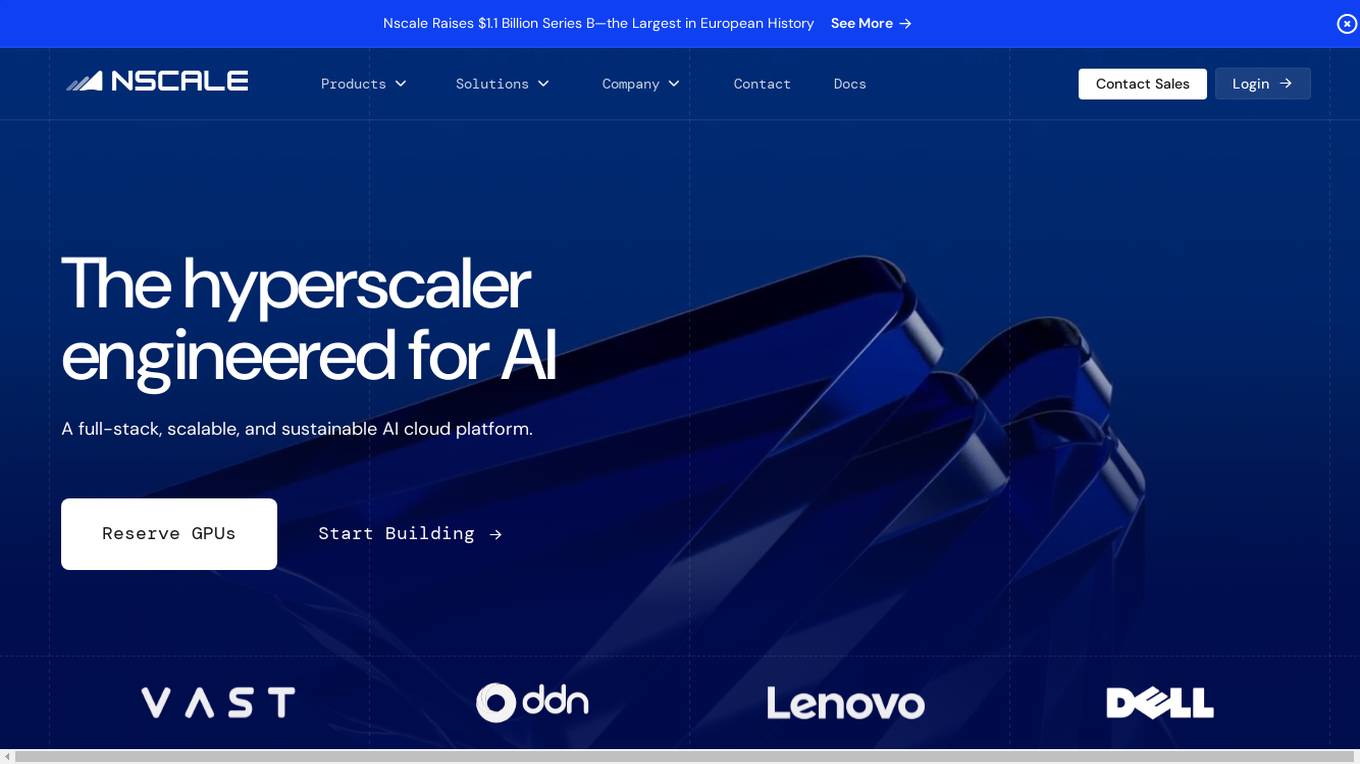
Nscale
Nscale is a full-stack, scalable, and sustainable AI cloud platform that offers a wide range of AI services and solutions. It provides services for developing, training, tuning, and deploying AI models using on-demand services. Nscale also offers serverless inference API endpoints, fine-tuning capabilities, private cloud solutions, and various GPU clusters engineered for AI. The platform aims to simplify the journey from AI model development to production, offering a marketplace for AI/ML tools and resources. Nscale's infrastructure includes data centers powered by renewable energy, high-performance GPU nodes, and optimized networking and storage solutions.
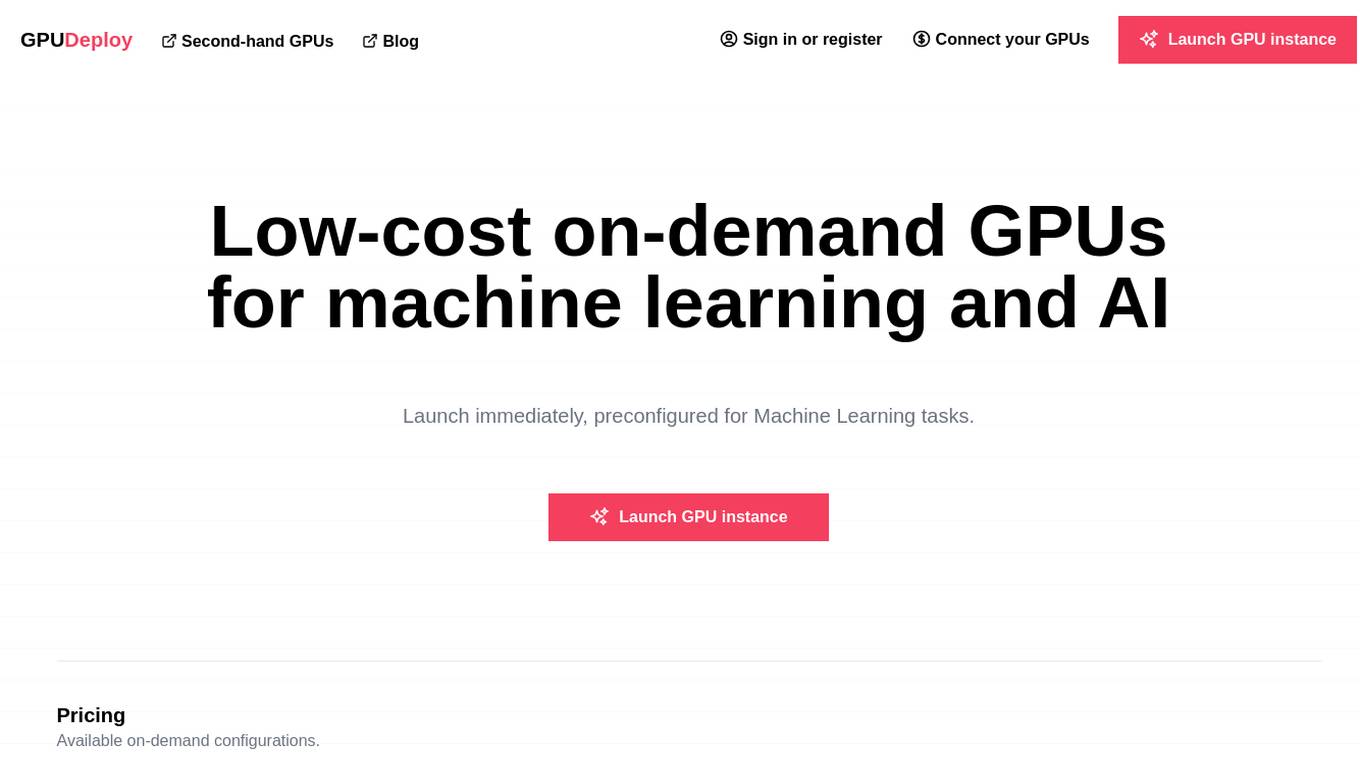
GPUDeploy
GPUDeploy is an AI tool that offers low-cost on-demand GPUs for machine learning and AI tasks. Users can easily connect their GPUs and launch GPU instances that are preconfigured for machine learning tasks. The platform provides various GPU configurations with different specifications to cater to diverse computing needs. GPUDeploy also allows users to earn by renting out idle GPUs, making it a versatile solution for both individuals and AI companies.
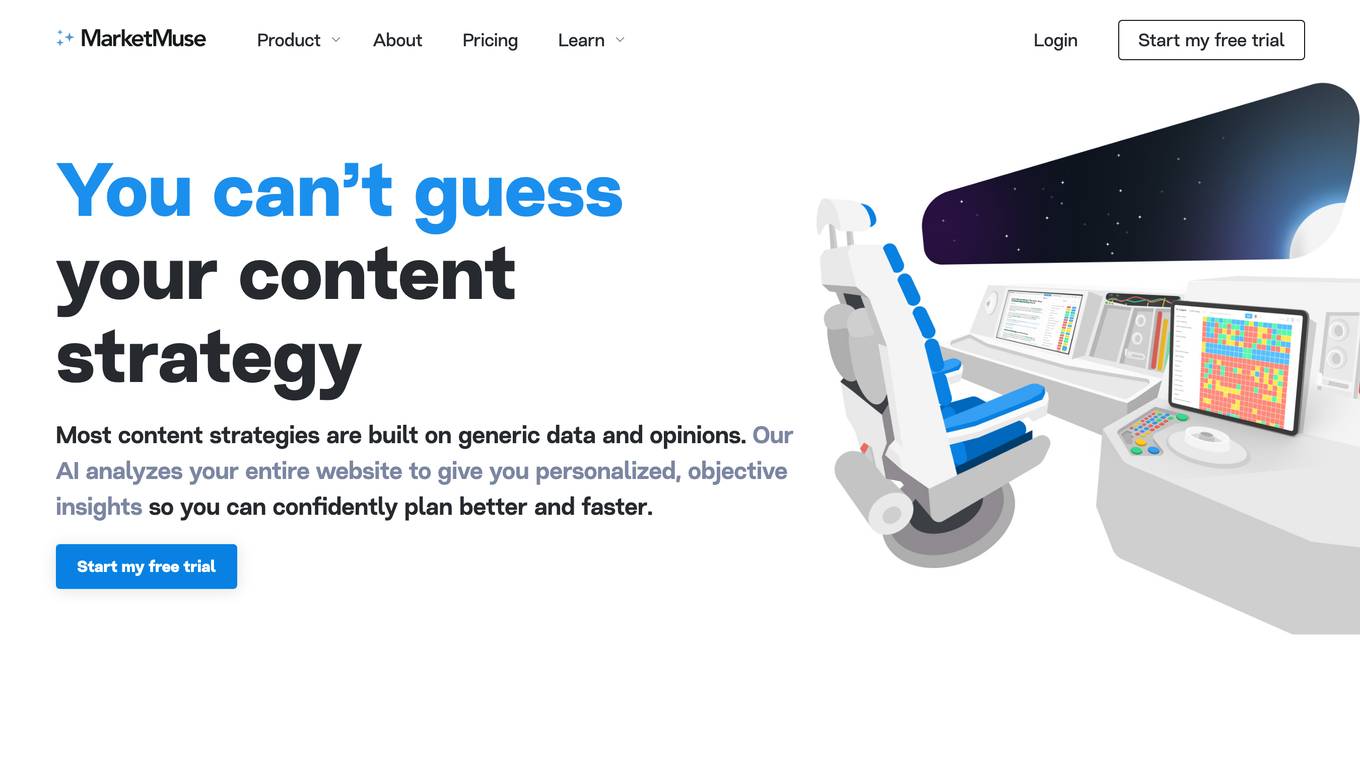
MarketMuse
MarketMuse is an AI-powered content planning and optimization software designed to help users create high-quality content that ranks higher in search engines. The software analyzes existing content inventory, identifies topic clusters, and provides personalized recommendations to improve content strategy. MarketMuse assists in content planning, competitor analysis, and personalized difficulty assessment to enhance content creation and optimization processes. Trusted by content teams, MarketMuse offers a data-driven approach to content development, enabling users to leverage their topical authority and stand out from competitors.
7 - Open Source AI Tools
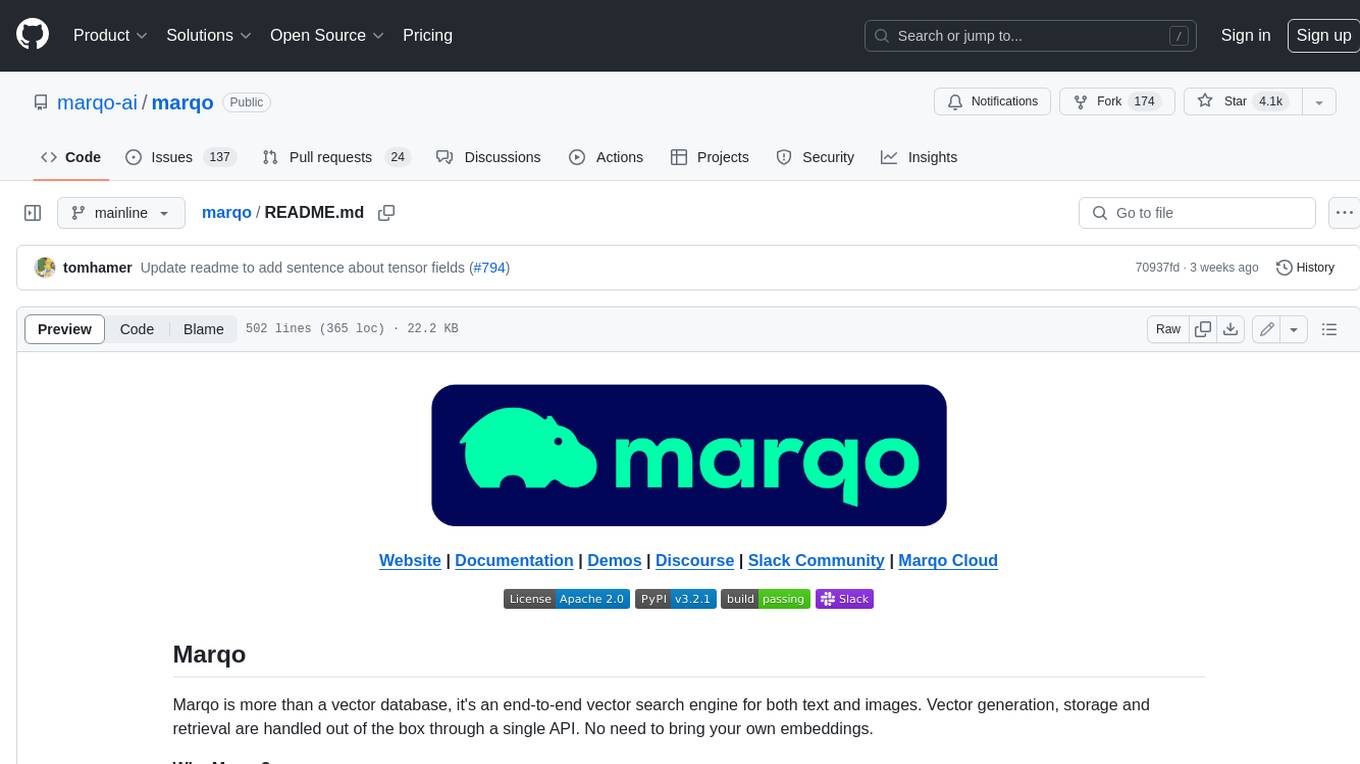
marqo
Marqo is more than a vector database, it's an end-to-end vector search engine for both text and images. Vector generation, storage and retrieval are handled out of the box through a single API. No need to bring your own embeddings.
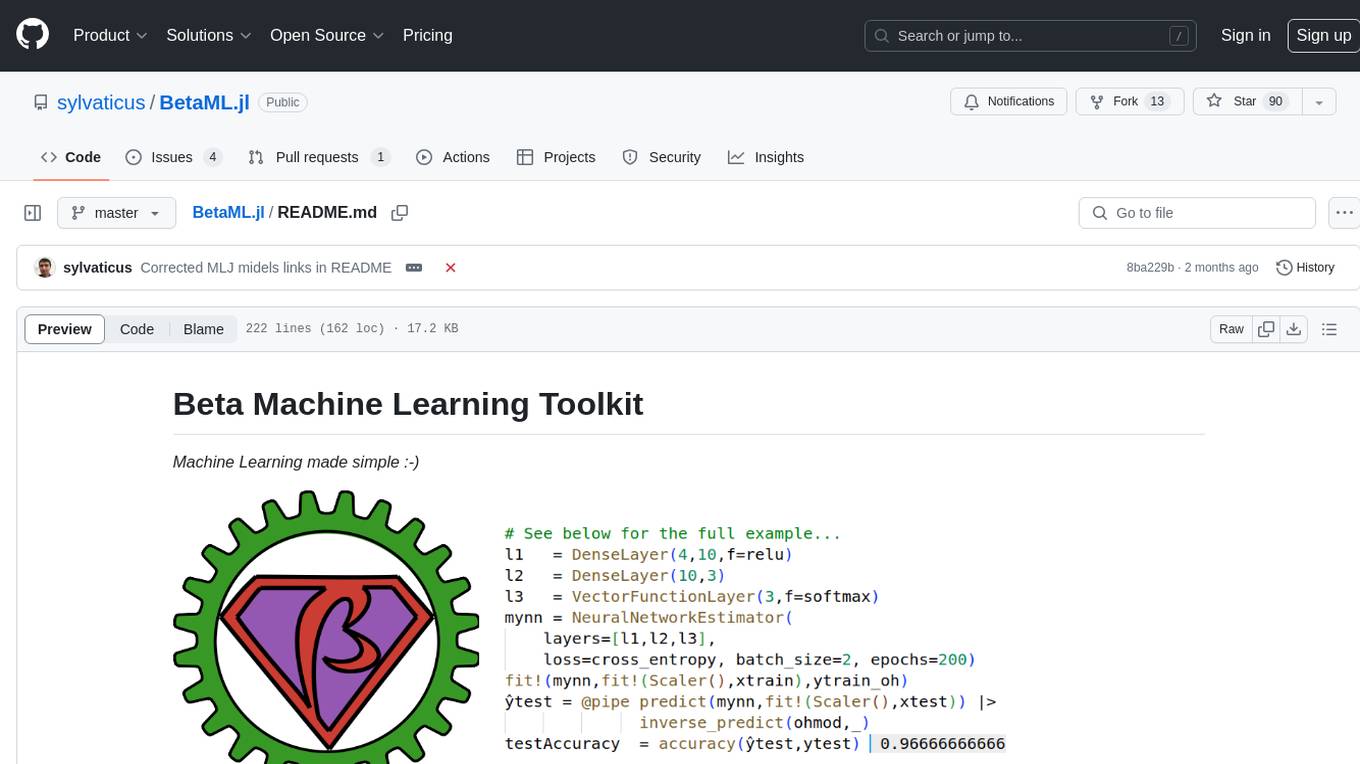
BetaML.jl
The Beta Machine Learning Toolkit is a package containing various algorithms and utilities for implementing machine learning workflows in multiple languages, including Julia, Python, and R. It offers a range of supervised and unsupervised models, data transformers, and assessment tools. The models are implemented entirely in Julia and are not wrappers for third-party models. Users can easily contribute new models or request implementations. The focus is on user-friendliness rather than computational efficiency, making it suitable for educational and research purposes.
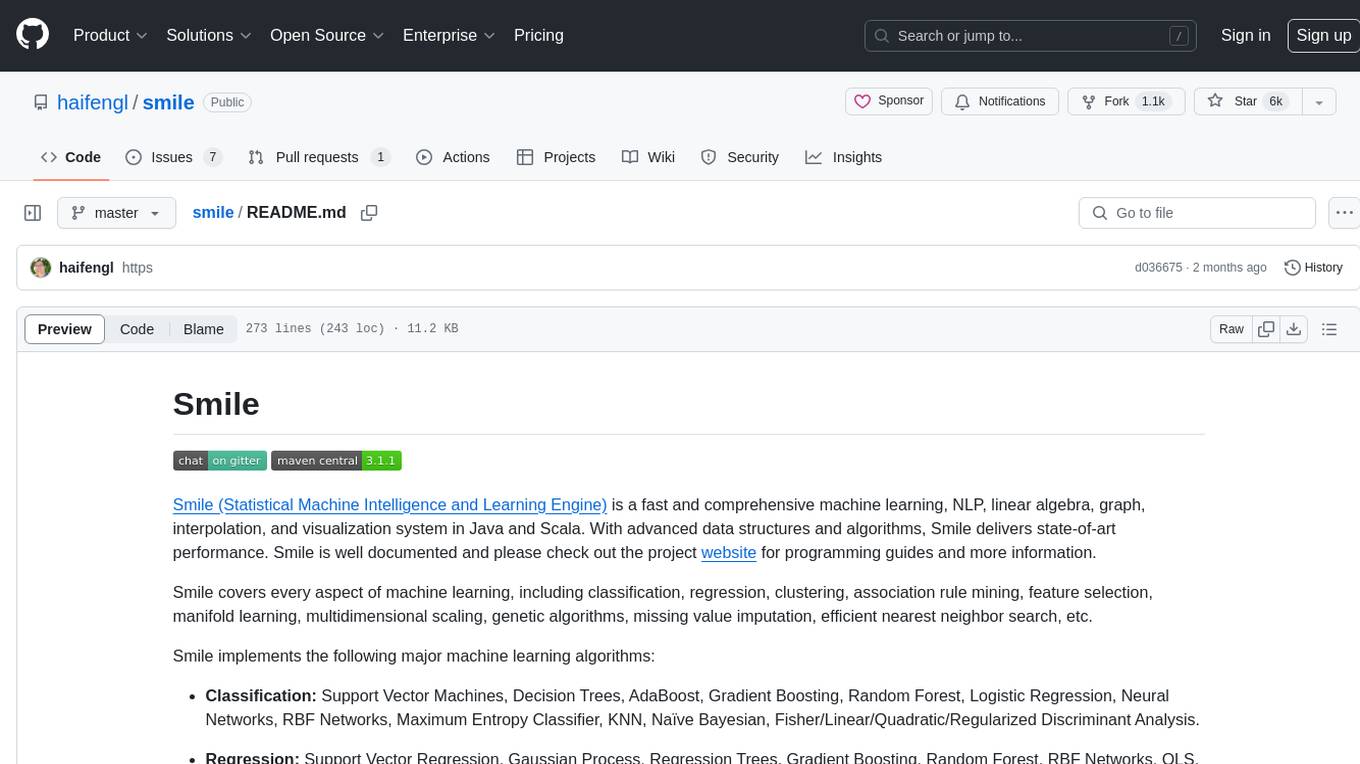
smile
Smile (Statistical Machine Intelligence and Learning Engine) is a comprehensive machine learning, NLP, linear algebra, graph, interpolation, and visualization system in Java and Scala. It covers every aspect of machine learning, including classification, regression, clustering, association rule mining, feature selection, manifold learning, multidimensional scaling, genetic algorithms, missing value imputation, efficient nearest neighbor search, etc. Smile implements major machine learning algorithms and provides interactive shells for Java, Scala, and Kotlin. It supports model serialization, data visualization using SmilePlot and declarative approach, and offers a gallery showcasing various algorithms and visualizations.
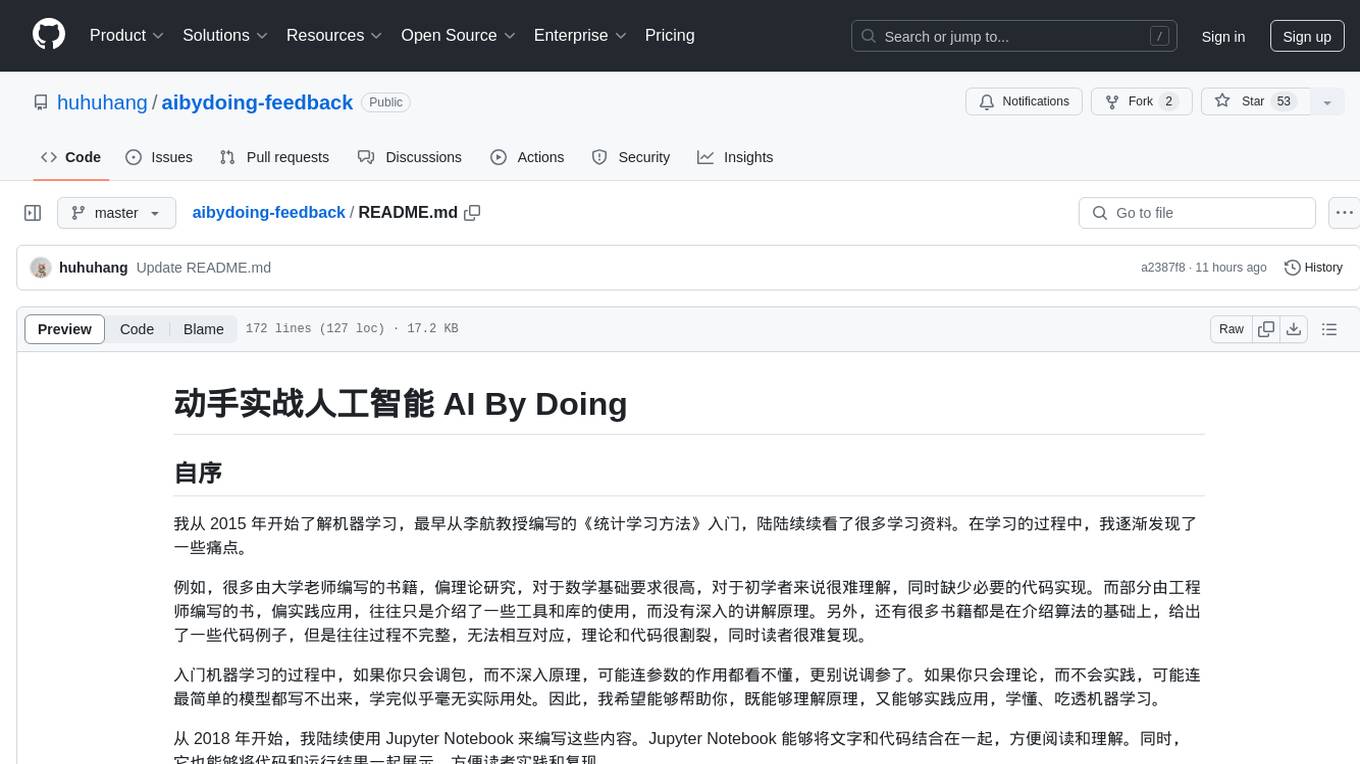
aibydoing-feedback
AI By Doing is a hands-on artificial intelligence tutorial series that aims to help beginners understand the principles of machine learning and deep learning while providing practical applications. The content covers various supervised and unsupervised learning algorithms, machine learning engineering, deep learning fundamentals, frameworks like TensorFlow and PyTorch, and applications in computer vision and natural language processing. The tutorials are written in Jupyter Notebook format, combining theory, mathematical derivations, and Python code implementations to facilitate learning and understanding.
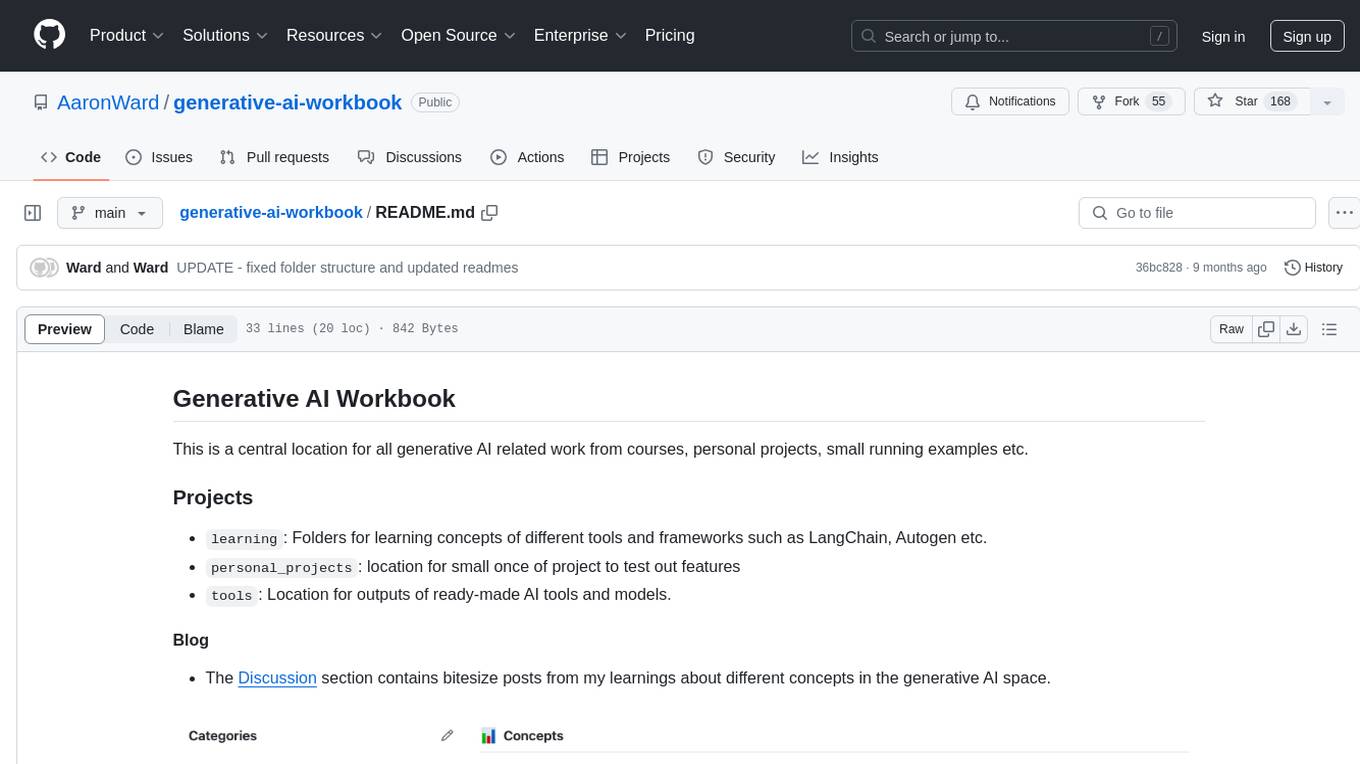
generative-ai-workbook
Generative AI Workbook is a central repository for generative AI-related work, including projects, personal projects, and tools. It also features a blog section with bite-sized posts on various generative AI concepts. The repository covers use cases of Large Language Models (LLMs) such as search, classification, clustering, data/text/code generation, summarization, rewriting, extractions, proofreading, and querying data.
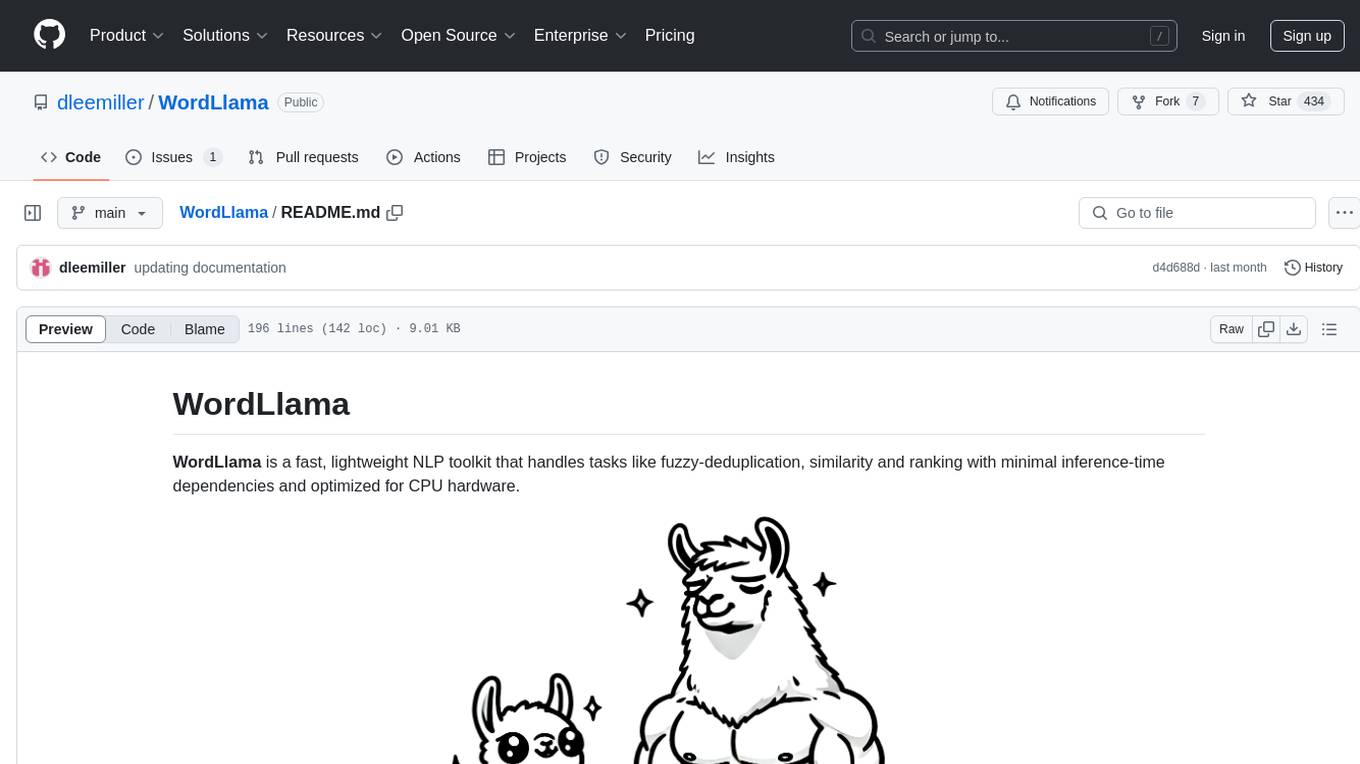
WordLlama
WordLlama is a fast, lightweight NLP toolkit optimized for CPU hardware. It recycles components from large language models to create efficient word representations. It offers features like Matryoshka Representations, low resource requirements, binarization, and numpy-only inference. The tool is suitable for tasks like semantic matching, fuzzy deduplication, ranking, and clustering, making it a good option for NLP-lite tasks and exploratory analysis.
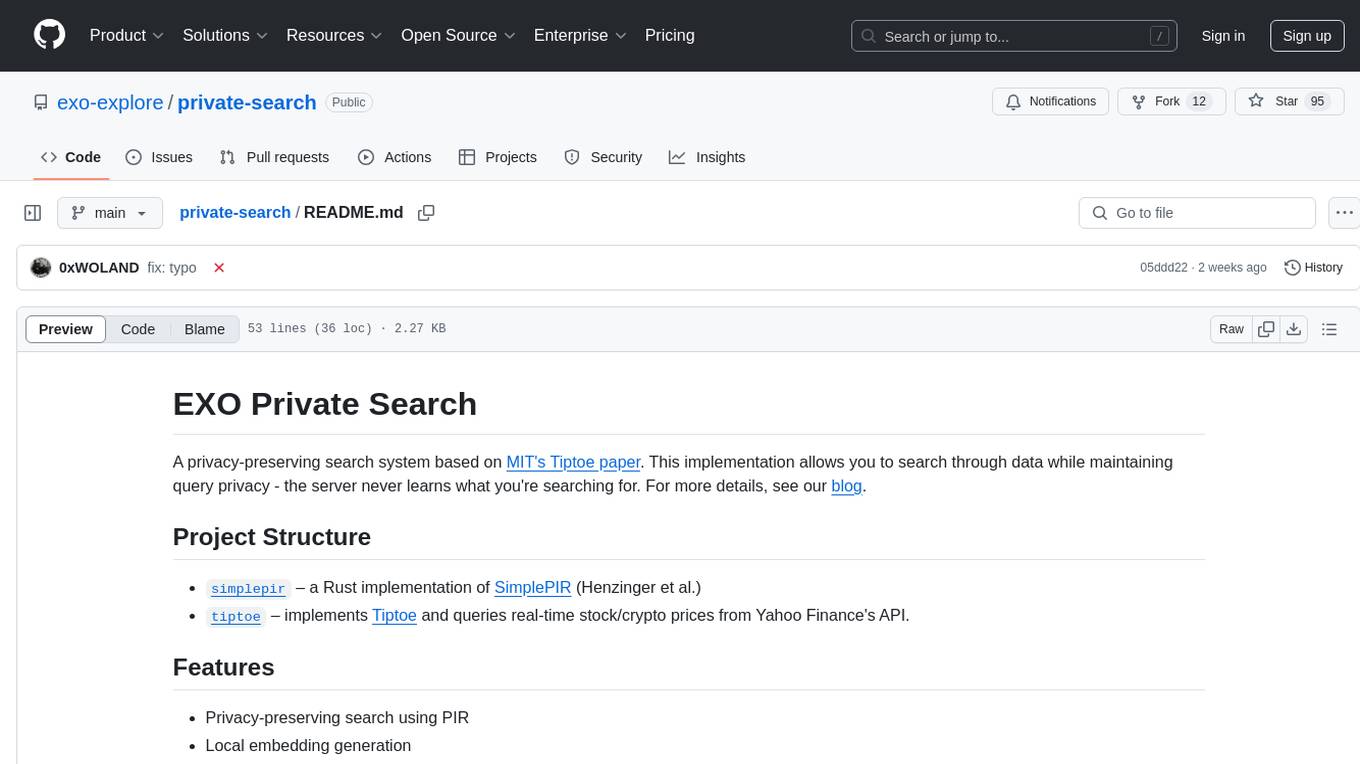
private-search
EXO Private Search is a privacy-preserving search system based on MIT's Tiptoe paper. It allows users to search through data while maintaining query privacy, ensuring that the server never learns what is being searched for. The system converts documents into embeddings, clusters them for efficient searching, and uses SimplePIR for private information retrieval. It employs sentence transformers for embedding generation, K-means clustering for search optimization, and ensures that all sensitive computations happen client-side. The system provides significant performance improvements by reducing the number of PIR operations needed, enabling efficient searching in large document collections, and maintaining privacy while delivering fast results.
10 - OpenAI Gpts
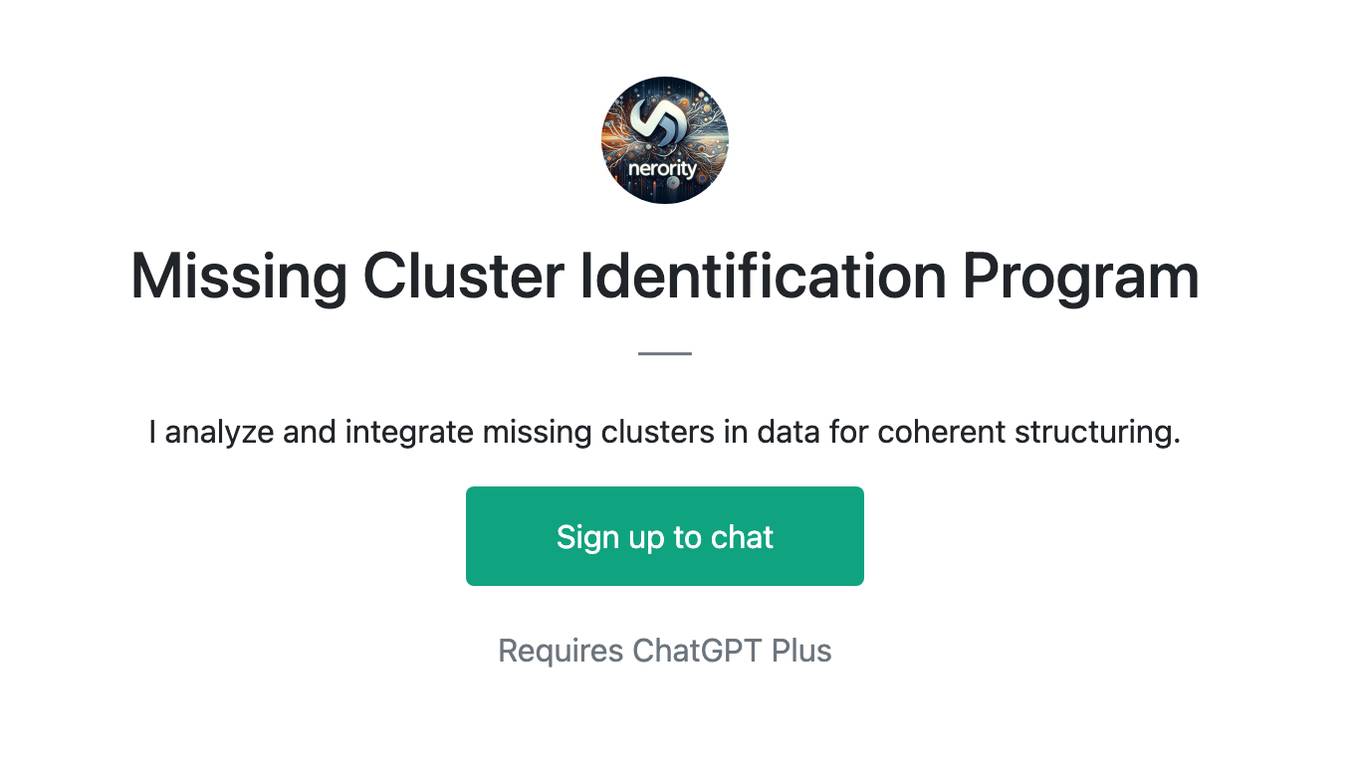
Missing Cluster Identification Program
I analyze and integrate missing clusters in data for coherent structuring.
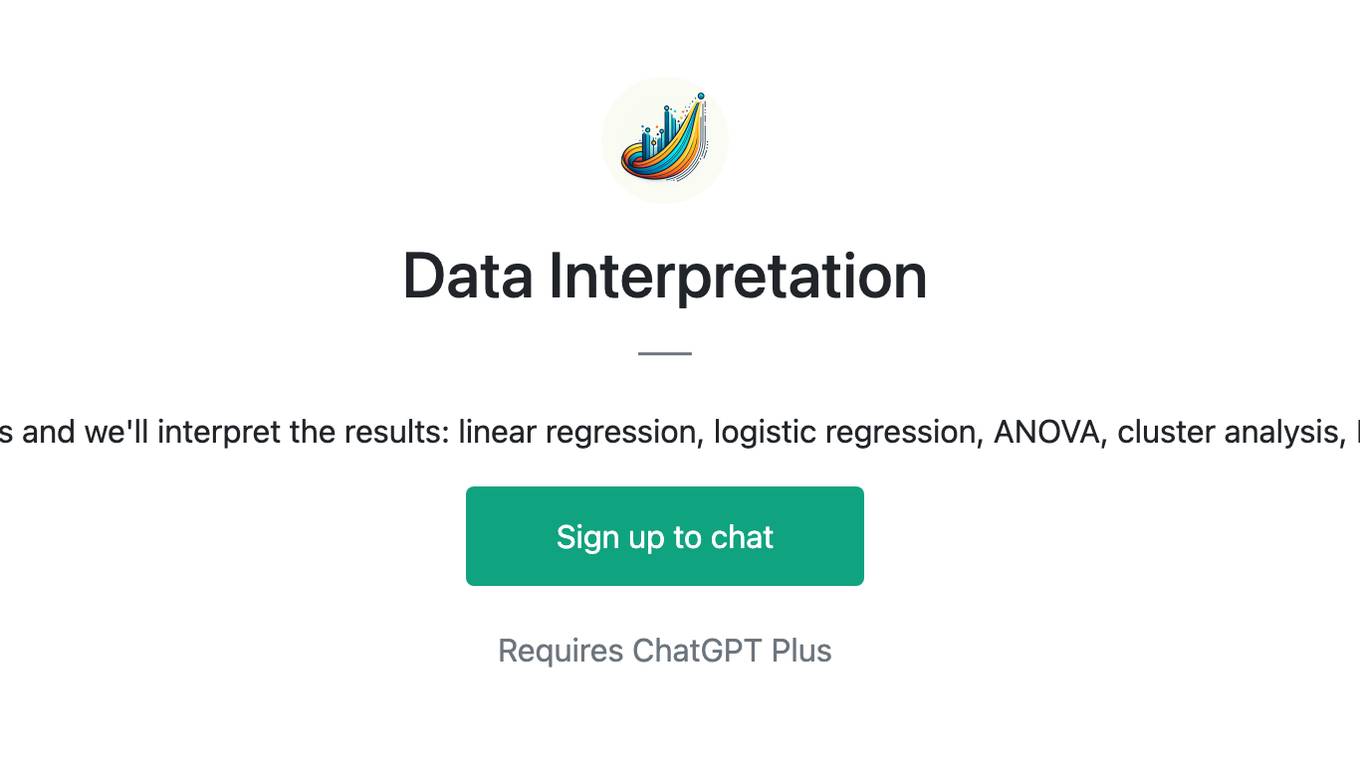
Data Interpretation
Upload an image of a statistical analysis and we'll interpret the results: linear regression, logistic regression, ANOVA, cluster analysis, MDS, factor analysis, and many more
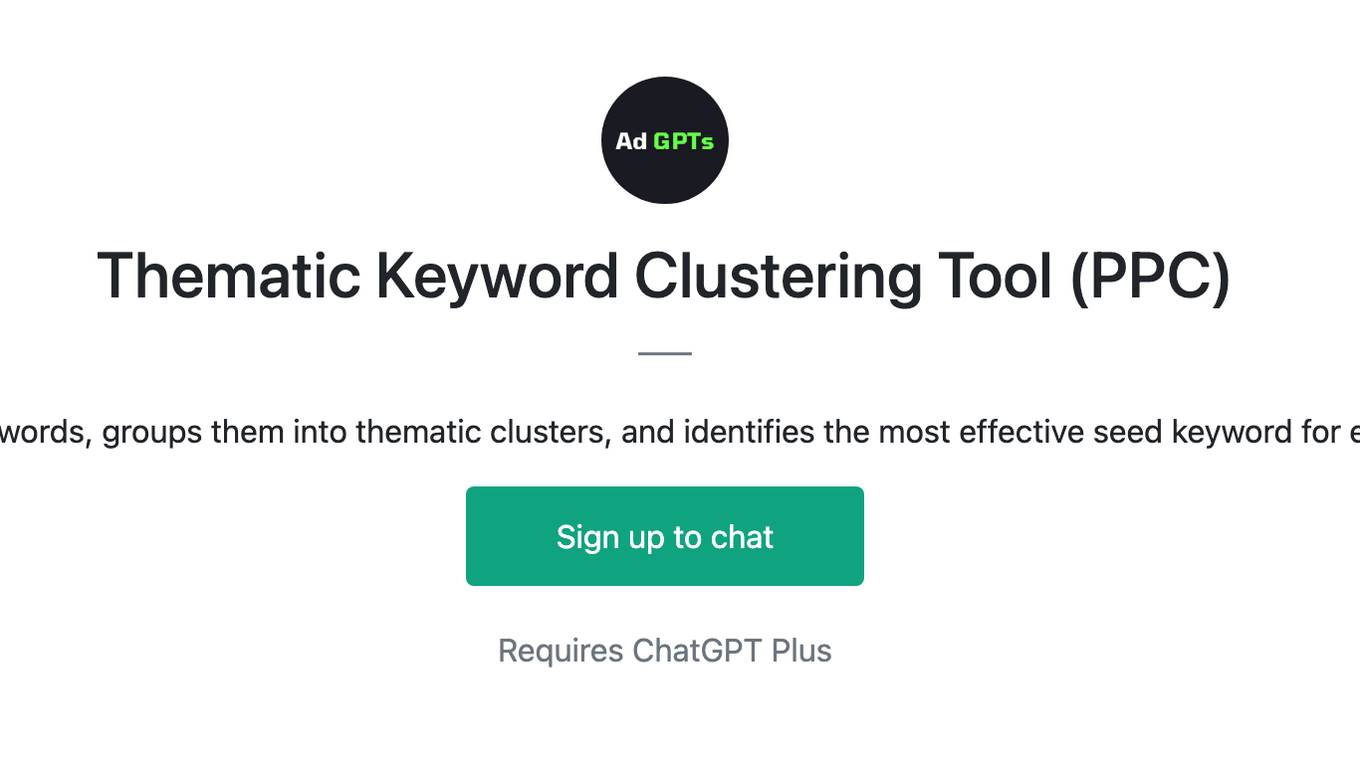
Thematic Keyword Clustering Tool (PPC)
Analyzes keywords, groups them into thematic clusters, and identifies the most effective seed keyword for each group.
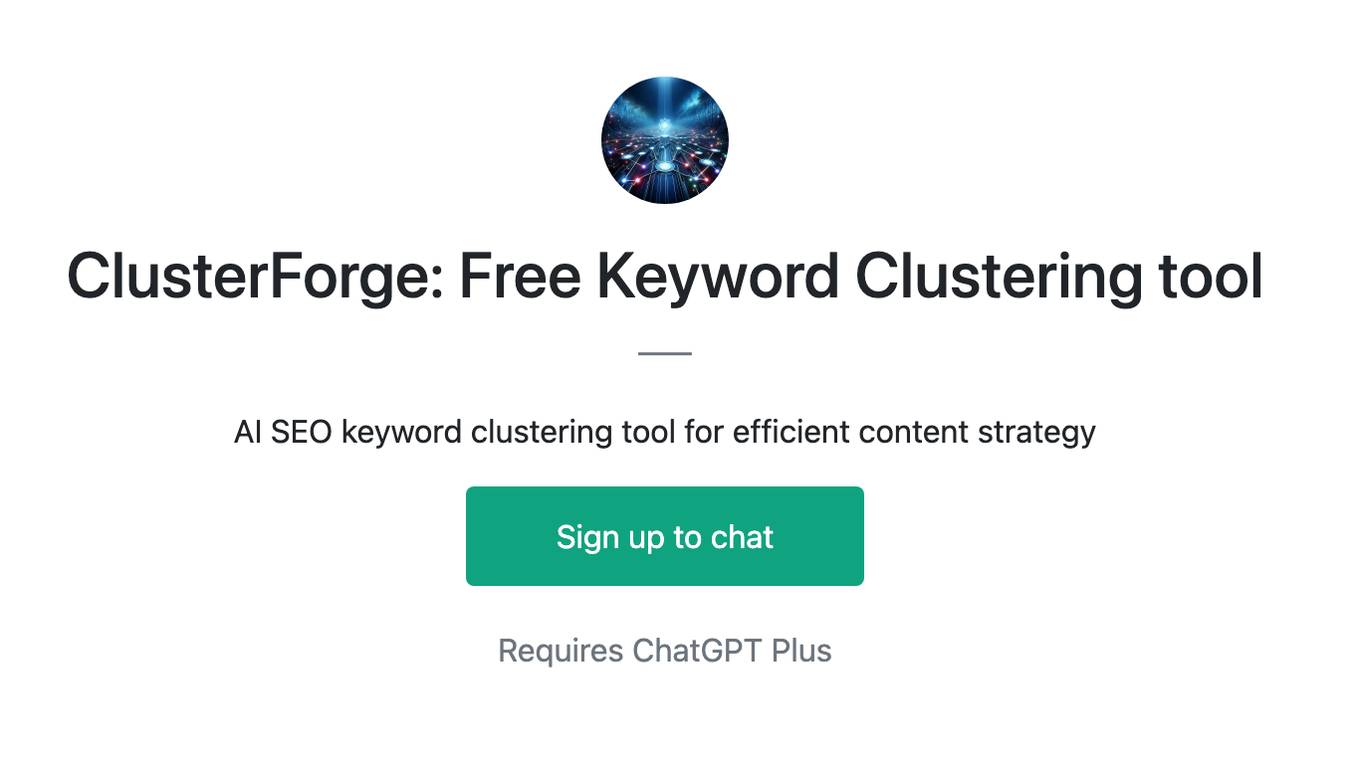
ClusterForge: Free Keyword Clustering tool
AI SEO keyword clustering tool for efficient content strategy

Docker and Docker Swarm Assistant
Expert in Docker and Docker Swarm solutions and troubleshooting.
